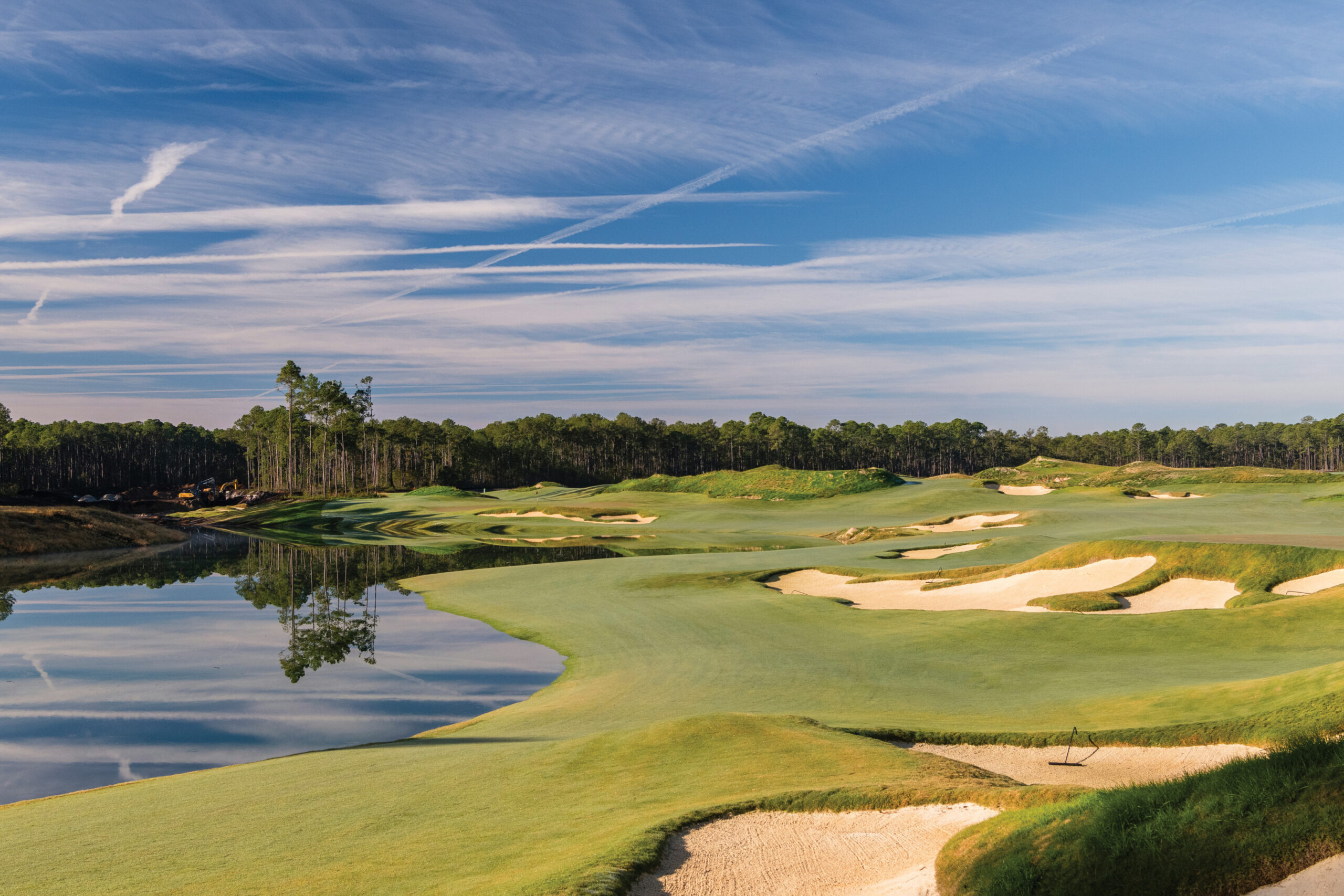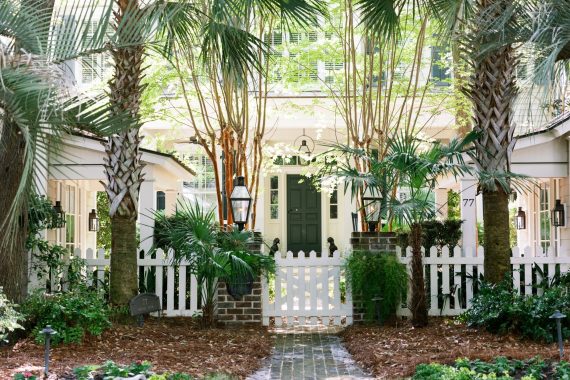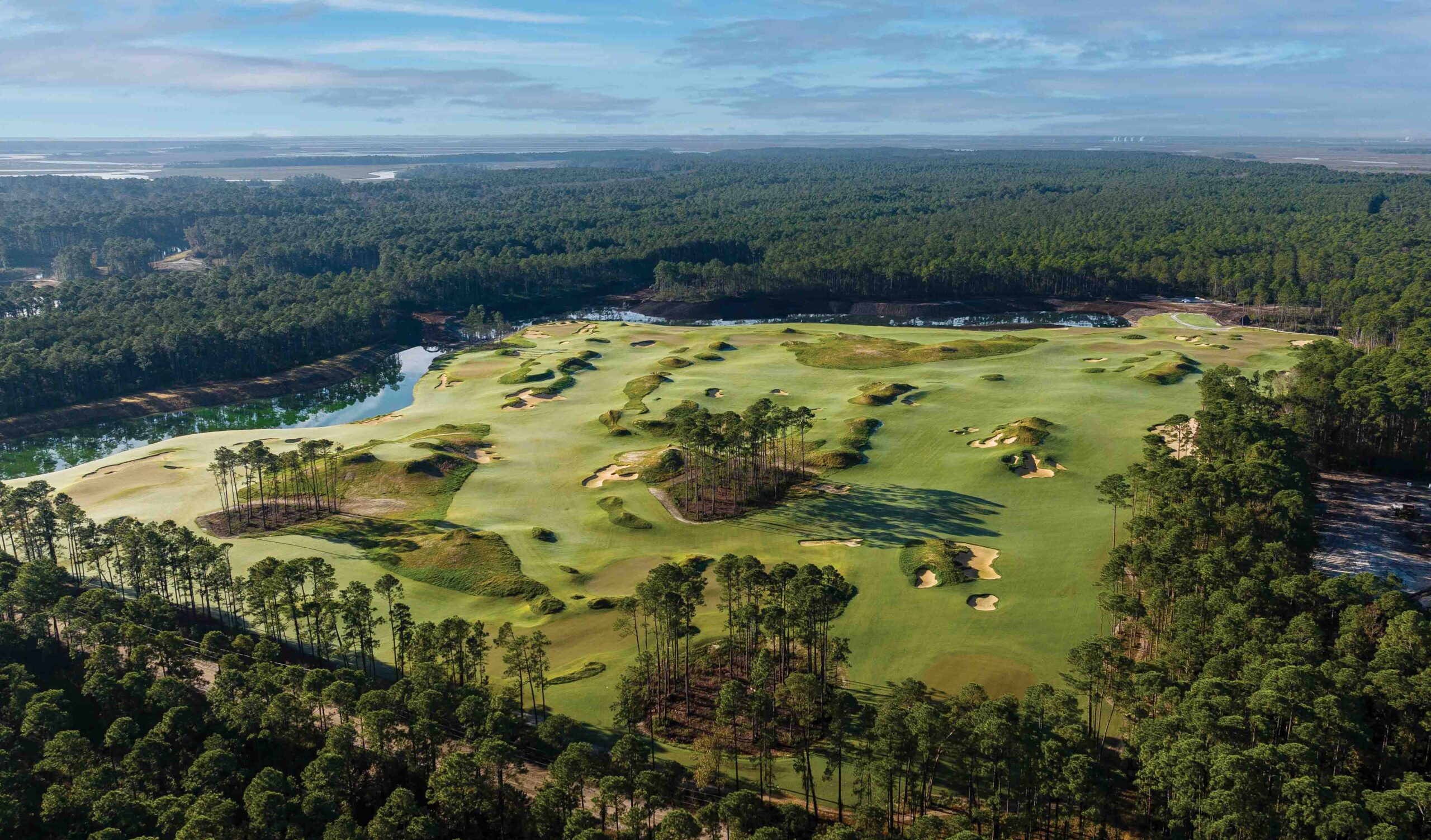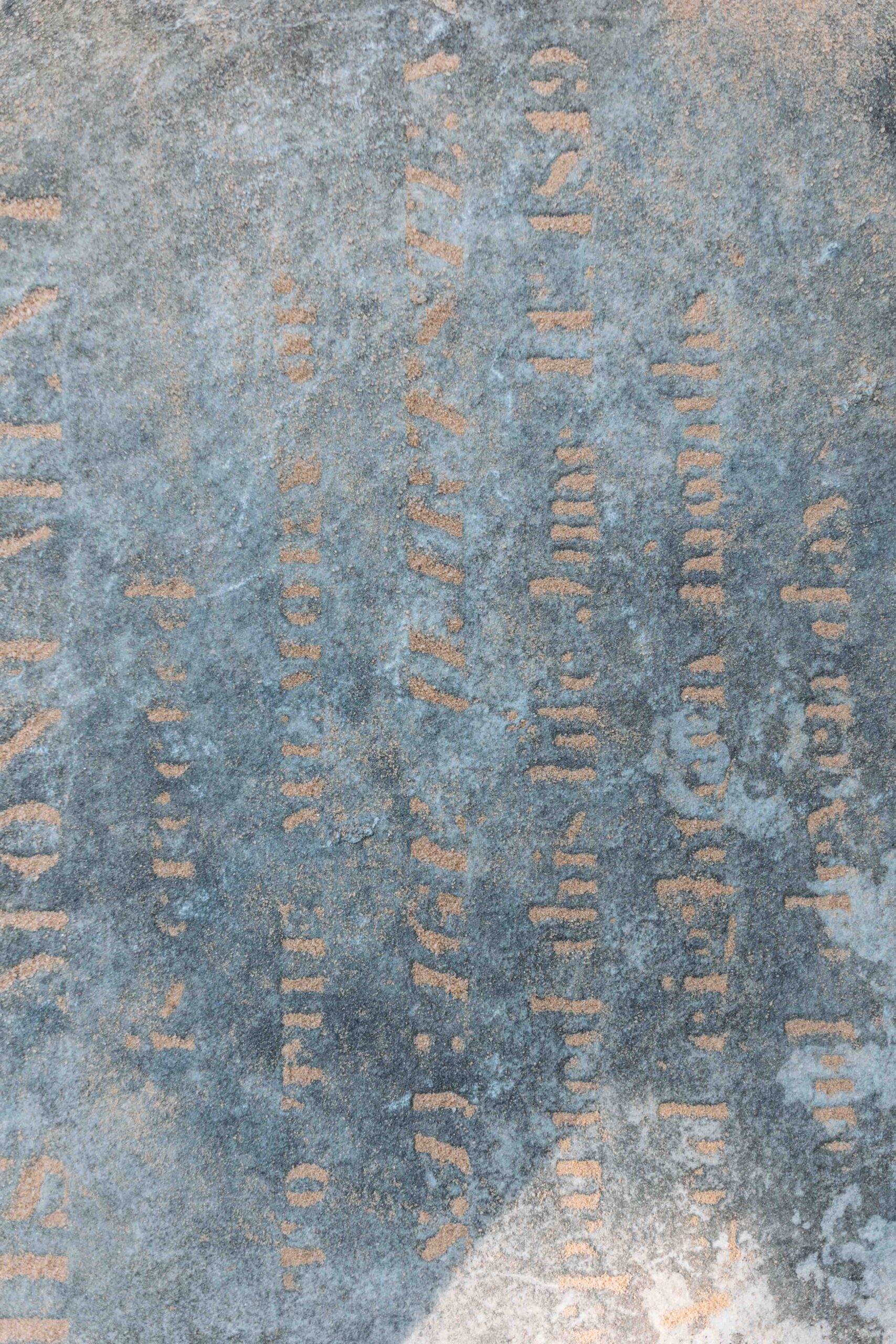If you’ve ever wandered the streets of Palmetto Bluff and gazed up at our centuries-old live oaks, you probably noticed delicate green fronds creeping up and curling around the massive trunks and branches, carpeting the trees in a lush green coat. This iconic image often seen throughout Southern landscapes is resurrection fern.

During periods of drought in the Lowcountry, folks not familiar with the magical ability of resurrection fern may spy its curly, brown leaves growing on the branches of a live oak and think it’s beyond hope. But then the rain comes, and with it, the miracle of resurrection fern…

The common name of the species Pleopeltis polypodioides, the resurrection fern is an evergreen fern that is typically found growing on trees, fallen logs, stumps, ledges, and rocks; however, in the Lowcountry, one of its most popular host plants is the live oak.
Like the Spanish moss that also makes its home on oak trees, the resurrection fern is an epiphyte, or air plant, which means it is dependent on its host plant for support but not nutrition. It grows on the surface of other plants and trees and derives its moisture and nutrients from the air, rain, water, or from debris accumulating around it. The flora is not parasitic and causes no injury to host trees; rather, it’s an integral part of the habitats that provide food and shelter for birds, lizards, insects, and mammals alike.

Found mostly throughout the Southeast, resurrection fern can be found in a variety of habitats, including as far north as New York and as far west as Texas. And, due to its ability to withstand drought, this tiny fern can do what few plants can: look dead one day and completely alive the next.
Pleopeltis polypodioides is called “resurrection fern” because, in periods without water, the fern appears to die. It shrivels up, its fronds turning brown and curling inward to minimize the surface area exposed to the element—that is, until the next rain, when the resurrection fern will miraculously spring to life within a matter of hours, uncurling and resurrecting to a live, healthy, green fern.

An old Southern favorite that grows four to 12 inches long, spreads widely by slender, creeping rhizomes, and is often found on the massive limbs of live oaks, this remarkable plant can lose 75-97% of its water content during extreme droughts and still survive! (By contrast, most other plants can lose only 10 percent of their water content before they die.) And while the plant gets its name from this supposed “resurrection,” it never actually dies during the process. It shrivels up to a grayish brown clump of leaves, coming back to life when it is exposed to water again—looking green and healthy.
Even more miraculous? It is thought that this Southeastern native can live as long as 100 years without water.

Here at Palmetto Bluff, resurrection fern is growing on most of the live oaks on property, as well as a few other species of trees, like cypress and magnolias. And, depending on recent rain conditions, there is an opportunity to observe the fern in both forms—desiccated and lush—all on the same day.

Marie McConnell Director of Member relations, Palmetto Bluff Club Where are you from and how did you get here? I am from Buffalo, New York—born and raised. Go Bills! My husband and I got married at Sea Pines in Hilton Head in 2012 and fell in love with the ...

Nestled amidst the tranquility of Palmetto Bluff, Longfield Stables stands as a beacon of serenity amid lush green pastures and the gentle presence of grazing horses. Its picturesque setting makes it a haven not only for the esteemed Palmetto Bluff Club Member...

The Conservancy is looking forward to another summer of fun with our upcoming kid's programs! Wild Child Camp and Junior Naturalist Camp will have dedicated weeks in June. Registration is $200 per child for the week. To participate, parents must fill out t...

Photographs by Summer Pagatpatan Palmetto Bluff is a wilderness playground for families, a gateway to the outdoors, to living life close to nature. Palmetto Bluff Growing Outdoors, or PBGO, encompasses the ethos of this extraordinary place. CampGO is PBGO’...

Discover the May River and Crossroads Golf Courses at Palmetto Bluff Positioned within the enchanting Lowcountry landscape, Palmetto Bluff boasts an array of world-class amenities, with its golf courses standing as a testament to the community's commitment to...

Jeff’s Journey to the Palmetto Bluff Fitness and Wellness Team Palmetto Bluff is located amidst the serene landscapes of the Lowcountry, a tranquil haven where wellness intertwines seamlessly with nature's splendor. Jeff Ford, the Palmetto Bluff Club's Direct...

5 Benefits of Living in South Carolina Known for its charming small towns, pristine coastline, and natural beauty, the South Carolina Lowcountry is one of the most popular places to live. The Lowcountry is a unique and desirable place to live, offering an arr...

Photographs by Patrick O’Brien Words by Rob Collins Designer Rob Collins of King-Collins offers a first look at Crossroads, Palmetto Bluff’s new nine-hole reversible golf course. It is a feat of design. One routing, The Hammer, is a whirlwind of angles and u...

Story by Katie Epps Photographs by Joel Caldwell Beneath Palmetto Bluff’s sprawling oaks lie twelve cemeteries that serve as the final resting places for hundreds of people and nine dogs. Five of these cemeteries were started as burial grounds for enslaved...

Putting Down Strong Roots The Grove seamlessly combines curated style with courtyard living, welcoming the lush beauty of the Lowcountry at every doorstep. With twelve homesites meticulously designed to maximize outdoor living, Palmetto Bluff Builders offer...

Learn about the Palmetto Bluff Conservancy and how we keep the vision of our land in place.
On land or water, there is an ever-evolving variety of activities.
We do not attempt to independently verify the currency, completeness, accuracy or authenticity of the data contained herein. All area measurements and calculations are approximate and should be independently verified. Data may be subject to transcription and transmission errors. Accordingly, the data is provided on an “as is” “as available” basis only and may not reflect all real estate activity in the market”. © [2023] REsides, Inc. All rights reserved. Certain information contained herein is derived from information, which is the licensed property of, and copyrighted by, REsides, Inc.